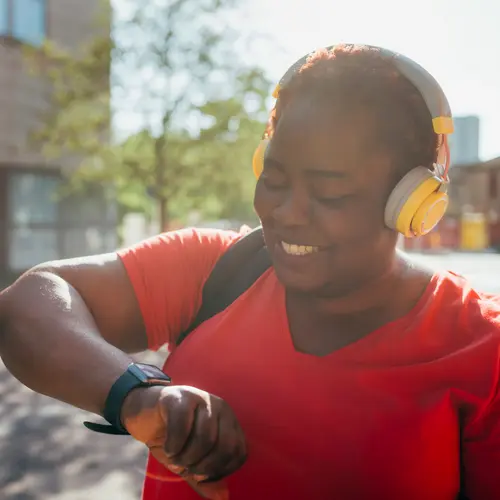Everyone needs to be careful to avoid the coronavirus that causes COVID-19. If you have type 1 or type 2 diabetes, you should be even more cautious.
Your risk of catching the virus isn't higher than anyone else's. But you could have worse complications if you do get sick. That's especially true if your diabetes isn't well-controlled. You should consider getting vaccinated to reduce your chances of getting the virus.
In addition, to reduce your chance of getting infected:
- Keep your distance from other people.
- Use good hygiene.
- Keep your blood sugar under control.
Have a plan in place in case you get sick.
Diabetes and Coronavirus
Early studies have shown that about 25% of people who went to the hospital with severe COVID-19 infections had diabetes. Those with diabetes were more likely to have serious complications and to die from the virus. One reason is that high blood sugar weakens the immune system and makes it less able to fight off infections.
Your risk of severe coronavirus infection is even higher if you also have another condition, like heart or lung disease.
If you do get COVID-19, the infection could put you at greater risk for diabetes complications like diabetic ketoacidosis (DKA). DKA happens when high levels of acids called ketones build up in your blood. It can be very serious.
Some people who catch the coronavirus have a dangerous body-wide response to it, called sepsis. To treat sepsis, doctors need to manage your body's fluid and electrolyte levels. DKA causes you to lose electrolytes, which can make sepsis harder to control.
Tips to Avoid Infection
The best way to avoid getting sick is to get vaccinated, or stay home as much as you can. Under the Americans With Disabilities Act, people with diabetes have the right to "reasonable accommodations at work." That includes the right to work from home or take sick leave when you need it.
If you have to go out, keep at least 6 feet away from other people, and wear a face mask if you are unvaccinated. Wash your hands or use hand sanitizer often while you’re out and when you get home.
Also wash your hands before you give yourself a finger stick or insulin shot. Clean each site first with soap and water or rubbing alcohol.
To protect you, everyone in your house should wash their hands often, especially before they cook for the family. Don't share any utensils or other personal items. And if anyone in your house is sick, they should stay in their own room, as far as possible from you. They should wear a cloth face mask when you have to be in the same room.
Your COVID-19 Diabetes Plan
Social distancing and shelter-in-place rules may make it harder to get the supplies you need. Stock up on enough goods to last you for a couple of weeks, in case you get quarantined.
Make sure you have:
- Enough food, especially healthy carbs like whole-wheat crackers, vegetable or noodle soups, and unsweetened applesauce
- Simple carbs like honey, sugar-sweetened soda, fruit juice, or hard candies in case your blood sugar dips
- The maximum number of refills you can get of your insulin and other medications
- Extra glucagon and ketone strips
- Phone numbers for your doctors and health insurance company
Medicare and some private insurance companies now cover the cost of telehealth visits. So if you have questions for your doctor, you can ask by video chat or phone instead of going into the office.
When you talk to your doctor, ask:
- How often to check your blood sugar and ketones
- How to adjust your diabetes medicines if you're sick
- What cold and flu remedies are safe for you to take
What to Do if You Get Sick
If you start feeling sick, stay home. Check your blood sugar more often than usual. COVID-19 can reduce your appetite and cause you to eat less, which could affect your levels. You also need more fluids than usual when you're sick. Keep water close by, and drink it often.
Some over-the-counter medicines that relieve virus symptoms like fever or cough can affect your blood sugar levels. High doses of aspirin or ibuprofen can lower blood sugar levels. Acetaminophen can cause falsely high readings on a continuous glucose monitor. Many liquid cough and cold medicines are high in sugar, which can raise your blood sugar levels. Before you take them, check with your doctor or diabetes team. Tell your doctor if you've taken them and your blood sugars are out of control.
Call your doctor if you get coronavirus-like symptoms such as a dry cough, fever, or shortness of breath. Have your most recent blood sugar and ketone readings available to share with your doctor.
Get medical help right away if you have:
- Moderate or large ketones
- DKA symptoms like tiredness, weakness, body aches, vomiting, or belly pain
- Severe shortness of breath

